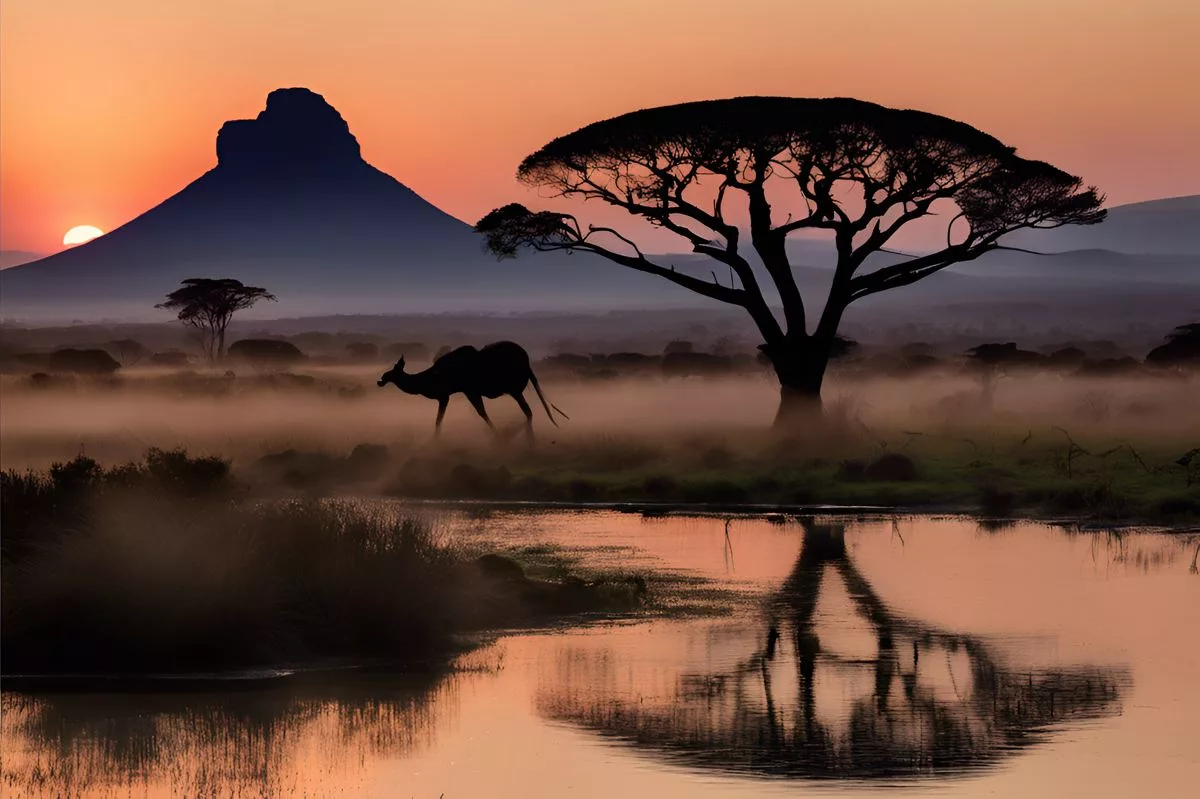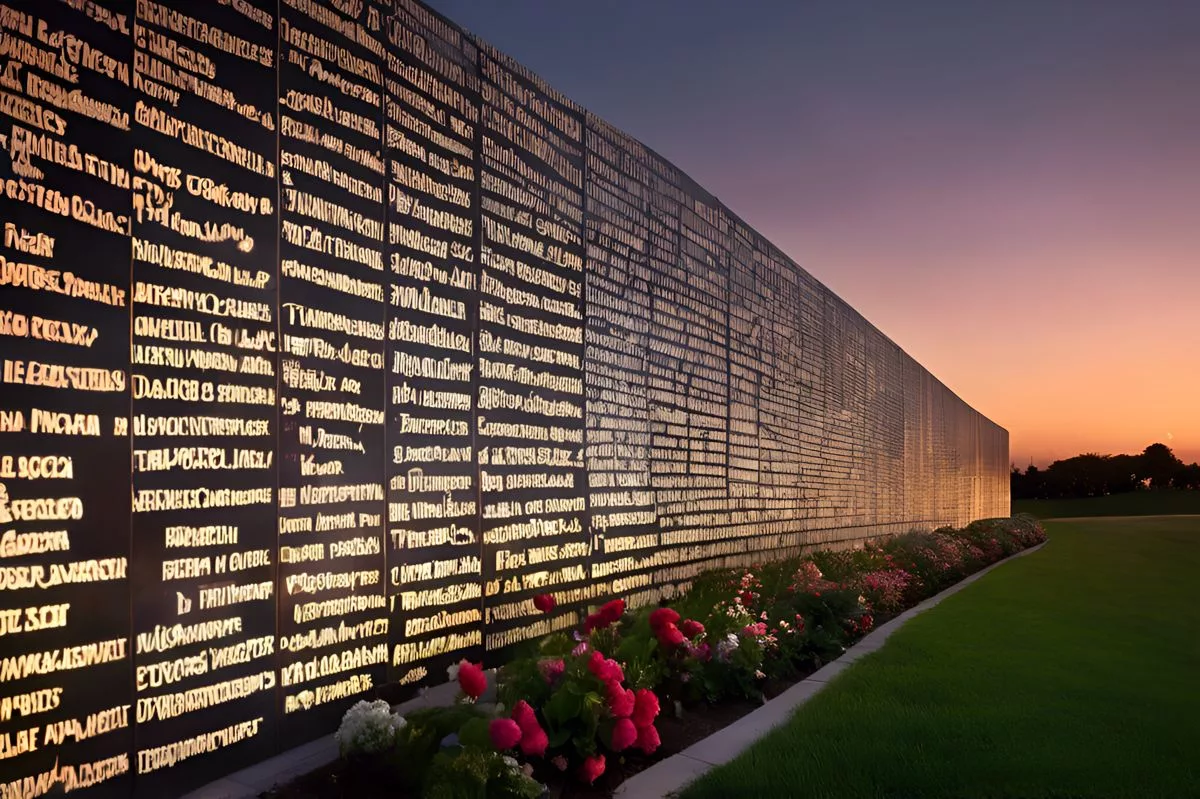On a sunny day in Carnarvon, Minister Patricia de Lille celebrated National World Tourism Day by highlighting the power of tourism to bring people together and promote peace in South Africa. She reflected on the country’s journey to democracy over the past 30 years and praised the booming tourism sector, which welcomed over 8.5 million visitors in 2023. The Minister encouraged everyone to explore the beautiful and often-overlooked Northern Cape, showcasing its rich culture and stunning landscapes. With exciting new initiatives like the National Astro-Tourism Strategy, she called for cooperation to ensure tourism’s growth and its role in building unity and understanding among diverse communities.
What was the main message of Minister Patricia de Lille’s address at National World Tourism Day?
Minister Patricia de Lille’s address emphasized the importance of tourism in promoting peace and cultural exchange in South Africa. She celebrated three decades of democracy, highlighted the tourism sector’s success, and called for collaboration to unlock the potential of regional tourism, ensuring sustainable growth and unity.
On a radiant morning in South Africa, Minister of Tourism Patricia de Lille took to the stage in Carnarvon, Northern Cape. The event was the National World Tourism Day celebration, highlighting a theme close to the heart of the nation: “Tourism and Peace: 30 Years of Connecting People, Places, and Culture.” This theme encapsulated the nation’s journey, weaving a narrative of peace and resilience into its cultural fabric.
A Journey of Peace and Progress
Minister de Lille opened her address by reflecting on South Africa’s turbulent past. She recounted the nation’s arduous struggle for freedom and the seemingly insurmountable challenges faced in the fight against apartheid. Now, three decades into democracy, South Africa stands as a beacon of hope and reconciliation. The Minister paid tribute to those who made immense sacrifices, their legacies now deeply ingrained in the spirit of a free South Africa.
She emphasized the significance of this milestone, noting how the country’s peaceful transition has set a global example. The journey from oppression to freedom is not just a historical achievement but a continuous process of building and maintaining peace. This transformation, as the Minister highlighted, serves as a powerful reminder of what can be achieved through resilience and unity.
Minister de Lille’s words resonated deeply, awakening a sense of pride and reflection among the audience. The narrative of overcoming adversity to build a harmonious society was a powerful testament to South Africa’s enduring spirit.
The Thriving Tourism Sector
Turning her focus to the tourism industry, Minister de Lille celebrated the sector’s remarkable success. She proudly shared that South Africa had been recognized globally, earning titles such as the friendliest country and top travel destination by the UK Telegraph Travel magazine. Over 8.5 million visitors flocked to South Africa in 2023, highlighting the industry’s vibrancy and the collective efforts of both the government and private sector.
The Minister underscored the importance of domestic tourism as a cornerstone of the industry. She revealed that South Africans themselves embarked on 38 million domestic trips last year, injecting R121 billion into the economy. Initiatives like the annual Sho’t Left Travel Week campaign play a crucial role in promoting local travel by offering discounted travel deals, encouraging citizens to explore the nation’s diverse landscapes and culture.
Minister de Lille also acknowledged the challenges faced by the tourism sector, particularly in the wake of global disruptions. She stressed the importance of resilience and adaptability, urging stakeholders to continue working together to sustain and grow the industry.
Celebrating World Tourism Day
The theme of “Tourism and Peace” for World Tourism Day underscored tourism’s ability to foster understanding among diverse cultures and communities. Minister de Lille elaborated on how South Africa prioritizes tourism, aligning with global goals for cultural exchange and economic growth. The celebrations provided a platform to recognize the critical role of tourism in global development and the rich, often unexplored treasures within South Africa’s borders.
Minister de Lille emphasized that tourism is not just about economic benefits but also about building bridges between different cultures. She highlighted various initiatives aimed at promoting cultural exchange and understanding, reinforcing tourism’s role in fostering global peace.
The Minister’s address served as a reminder of the interconnectedness of global communities, with tourism acting as a powerful tool for promoting unity and understanding. The celebrations of World Tourism Day were a testament to the sector’s potential to drive positive change and development.
Shining a Light on the Northern Cape
The choice of Carnarvon, Northern Cape, for this year’s celebration was deliberate. This often-overlooked province brims with untapped potential. Minister de Lille painted a vivid picture of the Northern Cape’s allure, showcasing its vast natural landscapes, warm-hearted locals, and a culinary tradition that tantalizes the senses. She fondly recalled an evening under the stars with the Komani San community, where storytelling created an unforgettable experience.
Minister de Lille encouraged travelers to explore the Northern Cape, highlighting its unique attractions and the potential for growth in tourism. She emphasized the need to invest in infrastructure and promote the region’s rich cultural heritage to attract more visitors.
The Minister’s address shed light on the importance of regional tourism and the potential for lesser-known areas to contribute significantly to the national tourism landscape. By promoting these hidden gems, South Africa can offer a more diverse and enriching experience to both domestic and international travelers.
The highlight of the day was the unveiling of the National Astro-Tourism Strategy, positioning South Africa as a leader on the African continent. This initiative, a collaboration between the Department of Tourism and the Department of Science and Innovation, seeks to bridge the gap between astronomical significance and indigenous celestial narratives. The strategy envisions an inclusive astro-tourism sector that marries human curiosity with conservation, fostering a deeper connection between the origins of life on Earth and the cosmos.
Minister de Lille announced the Gazetting Notice for public participation, inviting stakeholders and the public to contribute to this groundbreaking endeavor. She expressed excitement about the Square Kilometre Array telescope, the world’s largest radio telescope located just outside Carnarvon, which serves as a catalyst for rural and astro-tourism development.
The Astro-Tourism Strategy rests on three strategic pillars: Indigenous Celestial Narratives and Human Capacity Development, Infrastructure Development, and Inclusive Tourism Growth and Partnerships. These pillars aim to cultivate a sector that honors indigenous knowledge, promotes responsible outdoor lighting, and ensures tourism activities respect the environment and local communities.
Incentive Programmes for Tourism Growth
To further bolster the tourism sector, Minister de Lille outlined several incentive programs. The Green Tourism Incentive Programme offers partial funding for tourism establishments to adopt solar and water-saving technologies, promoting sustainability in operations. The Market Access Support Programme provides funding for businesses to exhibit at prominent tourism trade shows, enhancing visibility and market reach. Additionally, the R1.2 billion Tourism Equity Fund aims to support new and existing businesses with capital funding.
The Minister highlighted the critical role these programs play in driving sustainability and growth within the tourism sector. By offering financial support and resources, these initiatives empower businesses to innovate and expand, contributing to the overall development of the industry.
Minister de Lille also stressed the importance of public-private partnerships in achieving these goals. She called for continued collaboration to ensure the successful implementation of these incentive programs and the long-term growth of the tourism sector.
Embracing Digital Transformation
Minister de Lille emphasized the pressing need for digital transformation within the tourism sector. With the world increasingly moving online, leveraging technology like AI can enhance tourism offerings and attract more visitors. She called for collective efforts to improve digital infrastructure, ensuring South Africa remains competitive in the global tourism market.
The Minister highlighted the potential of digital tools to revolutionize the tourism industry, offering more personalized and efficient services to travelers. She encouraged stakeholders to invest in technology and innovation, positioning South Africa as a leader in the digital tourism space.
Minister de Lille’s address underscored the importance of embracing change and innovation to stay ahead in the ever-evolving tourism landscape. By harnessing the power of digital transformation, South Africa can continue to attract visitors and provide exceptional experiences.
A Call to Action
In her closing remarks, Minister de Lille issued a rallying call to all stakeholders. She urged collaboration across all levels of government and the private sector to promote South Africa’s hidden gems, fostering economic growth and job creation. By becoming ambassadors for tourism, South Africans can showcase their country’s beauty and diversity, embodying the spirit of democracy in action.
The Minister’s call to action resonated deeply with the audience, inspiring a renewed commitment to promoting and developing the tourism sector. By working together, stakeholders can unlock the full potential of South Africa’s tourism industry, driving growth and prosperity for all.
As the applause echoed through the hall, it was clear that Minister de Lille’s message had struck a chord. The celebration of National World Tourism Day was not just about acknowledging past achievements but envisioning a future where tourism continues to connect people, places, and cultures, nurturing peace and prosperity for generations to come.
“`markdown
What was the main message of Minister Patricia de Lille’s address at National World Tourism Day?
Minister Patricia de Lille’s address emphasized the importance of tourism in promoting peace and cultural exchange in South Africa. She celebrated three decades of democracy, highlighted the tourism sector’s success, and called for collaboration to unlock the potential of regional tourism, ensuring sustainable growth and unity.
How has tourism performed in South Africa in recent years?
In 2023, South Africa welcomed over 8.5 million visitors, showcasing the country’s vibrant tourism sector. This success reflects the collective efforts of both the government and the private sector. Additionally, South Africans themselves undertook 38 million domestic trips, injecting R121 billion into the economy.
What initiatives were highlighted by the Minister to promote tourism growth?
Minister de Lille introduced several initiatives to promote tourism growth, including the National Astro-Tourism Strategy, which seeks to position South Africa as a leader in astro-tourism on the African continent. She also emphasized the importance of domestic tourism campaigns, such as the Sho’t Left Travel Week, to encourage local travel.
What role does the Northern Cape play in South Africa’s tourism landscape?
The Northern Cape was highlighted as an often-overlooked province with vast potential for tourism. Minister de Lille encouraged travelers to explore this region, emphasizing its stunning landscapes, rich culture, and culinary traditions. She stressed the importance of investing in infrastructure to attract more visitors.
How does the Minister propose to foster sustainability in the tourism sector?
Minister de Lille outlined various incentive programs, including the Green Tourism Incentive Programme, which provides funding for tourism establishments to adopt sustainable practices. The R1.2 billion Tourism Equity Fund aims to support new and existing businesses with capital funding, promoting growth and sustainability within the sector.
What is the significance of digital transformation in South Africa’s tourism industry?
Minister de Lille highlighted the pressing need for digital transformation to enhance tourism offerings and attract more visitors. By leveraging technology and improving digital infrastructure, South Africa can remain competitive in the global tourism market, offering personalized and efficient services to travelers.
“`












